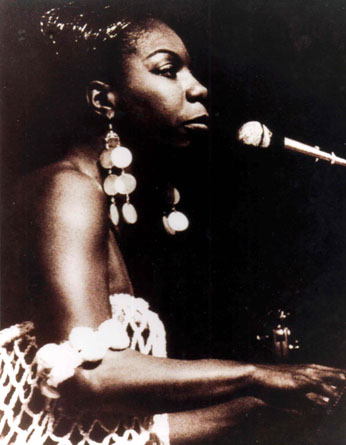“MISSISSPPI GODDAM”
Eunice Kathleen Waymon better know as Nina Simone was born on February 21, 1933 in Tyron , North Carolina
“Mississippi GODDAM” was the first song out of
many that Nina Simone openly addresses the racial inequality that was going on in the United States Mississippi GODDAM” was her own personal reaction of the murder of Medgar Evers and the killing of four black children in Birmingham , Alabama Alabama ’s got me so upset, Tennessee Selma to Montgomery
“Mississippi
My personal reflection of “Mississippi 16th street Baptist church that was raided by the Klu Klux Klan. The civil rights movement was about 5 decades ago and many of the activists aren’t alive today to witness the great victory of their hard work and dedication by having the first black president Barack Obama in office.
Resources:
Ø Wikipedia – Mississippi
Ø Wikipedia- Nina_Simone-
http://en.wikipedia.org/ wiki/Nina_Simone
Nina Simone
1933-2003
